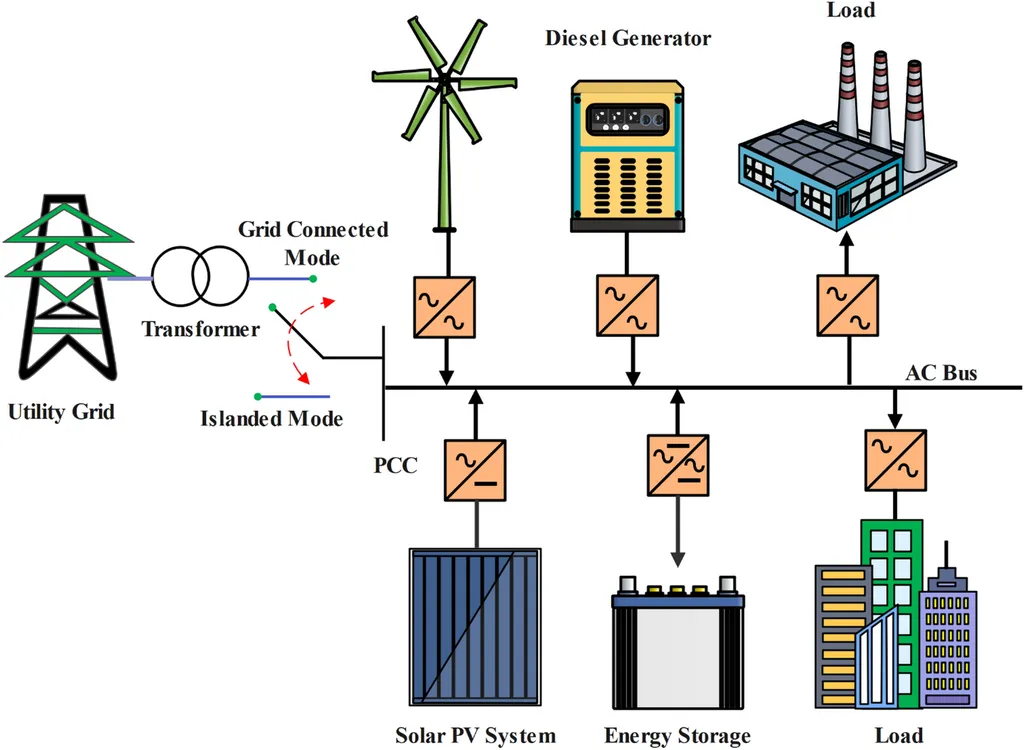In the ever-evolving landscape of power systems, maintaining stability is paramount. A recent study published in the journal *IET Electrical Systems in Transportation* (formerly known as IET Intelligent Transport Systems) offers a novel approach to enhancing frequency and voltage control in power grids, particularly those integrating renewable energy sources and electric vehicles. Led by Hiramani Shukla from the Department of Electrical Engineering, the research introduces a sophisticated method that could significantly impact the energy sector.
The study focuses on the critical roles of Automatic Voltage Regulator (AVR) and Automatic Generation Control (AGC) loops in maintaining system stability. “The integration of renewable energy sources and electric vehicles presents unique challenges to power system stability,” Shukla explains. “Our research aims to address these challenges by optimizing control strategies to mitigate frequency and voltage oscillations.”
The research incorporates renewable energy sources such as photovoltaic (PV) systems, fuel cells (FCs), and aqua electrolyzers (AEs) into the power grid. Additionally, it examines the impact of energy storage and electric vehicle integration on reducing these oscillations. One of the key findings is the consideration of communication time delays (Tds), which can cause system instability in real-world scenarios.
The study employs a Proportional Integral Derivative (PID) controller as a subsidiary controller for the combined study of AGC and AVR. The efficacy of the PID controller is compared with classical I and PI controllers, as well as other control techniques from the literature. To optimize the controller parameters, the research utilizes a recently developed Secretary Bird Optimization (SBO) algorithm.
The implications of this research are profound for the energy sector. As the world shifts towards renewable energy sources and electric vehicles, ensuring the stability of power systems becomes increasingly critical. “Our findings contribute valuable insights into enhancing power system stability, which is essential for the reliable and efficient operation of modern power grids,” Shukla notes.
The study’s innovative approach to frequency and voltage control could shape future developments in the field. By optimizing control strategies and considering the impact of communication time delays, the research provides a roadmap for improving power system stability in an era of rapid technological change.
As the energy sector continues to evolve, the insights from this research will be invaluable for engineers, researchers, and policymakers. The integration of renewable energy sources and electric vehicles into the power grid is a complex challenge, but with innovative solutions like those presented in this study, the path forward becomes clearer. The research not only advances our understanding of power system stability but also paves the way for more reliable and efficient energy systems in the future.

